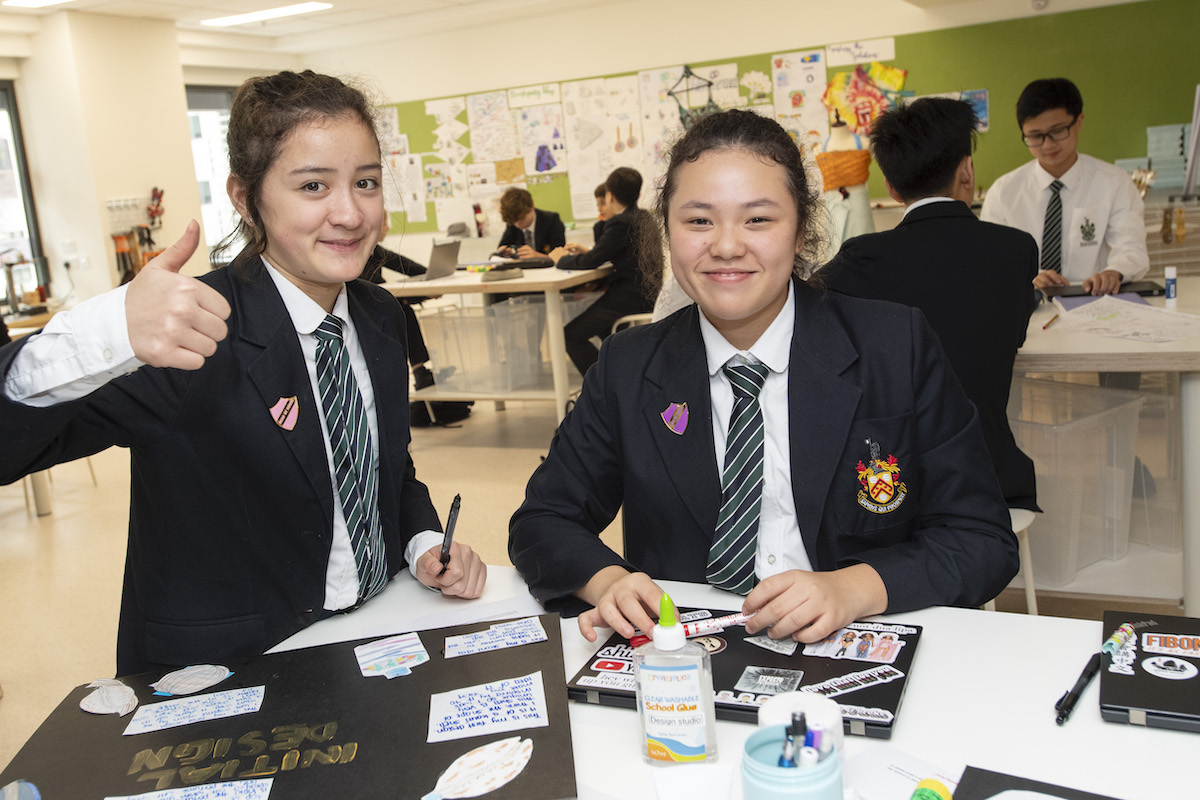
A closer look at Malvern College’s entrepreneurial education
Dr Robin A Lister discusses the benefits of teaching entrepreneurial skills early onAsk any number of people about what entrepreneurial education means to them, and you’re bound to collect a disparate set of opinions. Most commonly, these opinions will converge around the development of business acumen, fostering creativity and more generally, seeking learning outcomes that manifest the next CEO of a to-be-listed unicorn.
Being able to rely on a sleuth of Nobel prize winners, corporate leaders, scientists and renowned authors may come with its fair share of appeal in terms of attracting future pupils. What parents often underestimate is the blueprint that underlines the clustering of success.
Dr Robin A Lister, Founding Headmaster of Malvern College Hong Kong, believes that essential entrepreneurial skills enhance the chances of desirable outcomes in pupils and that these skills can be taught early on. Entrepreneurial education is, in fact, one of Five Centres of Excellence which have been integrated into Malvern’s core DNA. The others being British-style pastoral care; enhanced learning; outdoor and environmental education and a global network. While globally each Malvern school has its own unique identity, the Five Centres of Excellence are the essence of a Malvern education. Pupil-centricity is also integral and, as such, the school focuses to maximise each pupil’s academic potential and develop their talents and personal interests so they can flourish as individuals.
Drawing upon a rich heritage, Malvern quickly earned a reputation as one of the top international schools in the region when it landed on Hong Kong soil in 2018. Three years on, the school continues to demonstrate its excellence. Having been awarded IB PYP, MYP and DP accreditation within the academic year 2020/21, it is now a fully accredited IB World School. As an advocate for entrepreneurial education, Lister shares below an insight into how the school fosters the necessary tools for an entrepreneurial mindset in pupils early on in their learning journey.
Why is an entrepreneurial mindset beneficial?
It seems trivial but nonetheless true that all great entrepreneurs, from the early industrialists to more contemporary social media founders, share a positive, solution-focused mindset which in turn drives them to recognise and address societal, economic or commercial challenges. Entrepreneurial success is frequently rooted in resilience and perseverance in the face of adversity: adopting a “taking-the-bull-by-the-horns”-approach has helped millions of entrepreneurs to tackle and overcome any challenges they might come across throughout their entrepreneurial journey. In a scholastic context, this means an early and repeated exposure to the concept that failure is not something negative but part of the process and an opportunity to improve.
How can we help students develop empathy and transdisciplinary skills?
Finding problems or opportunities through empathy is another entrepreneurial skill, underpinning Malvern’s deeply rooted tradition of service to others. Earlier this academic year, FY3 (Year 9) pupils used cloudy goggles and wooden frames for their hands to experience how difficult simple day-to-day tasks can be for those who suffer from visual impairment or arthritis. In their Design class, the pupils subsequently sought to build basic aids for affected people. Critical thinking as well as transdisciplinary learning and teaching approaches provide ample opportunities to cross-reference and interconnect growing knowledge and know-how. For example, FY2 (Year 8) pupils recently engaged in a transdisciplinary unit connecting Physical Education and Design: they invented and designed a new batting and fielding game, using technology and data to optimise technique and outcome.
How can we foster the desire to learn?
In today’s modern, interconnected and fast evolving world, it becomes increasingly important to both harness new sources of acquiring knowledge and to foster a positive, result-oriented outcome. Malvern College Hong Kong follows the International Baccalaureate curriculum, which is best summarised as being inquiry and not just knowledge-based. In practice, this means that teachers will not simply provide the correct answers, instead, pupils are guided towards asking the right questions in order to find the correct answers themselves.
As an example, Remove and Hundred (Year 10 and 11) pupils were recently put in front of a heap of old electronic devices and challenged to create something new out of them. Far beyond a simple recycling exercise, the pupils were asked to disassemble, creatively adapt and redesign the items with the aim to find a sustainable market opportunity. Reflecting on the commercial applicability of their new creation, pupils followed the basic steps of identifying an opportunity or problem, developing and creating a feasible solution and finally, testing and evaluating each other’s prototypes or systems. Lastly, the establishment of a basic marketing and promotion concept formed an integral part of the learning unit, mimicking – on a smaller scale – an entrepreneurial effort in a commercial world.
What types of activities encourage an entrepreneurial mindset early on?
At Malvern College Hong Kong, we create an environment that fosters entrepreneurial problem-solving in the primary years. Recently, Prep 4 (Year 4) pupils were reflecting on water as a finite resource. In partnership with the charity Crossroads Foundation, pupils visited the Foundation’s site in Hong Kong and participated in various simulation activities, which helped them to develop a perspective for those without ready access to clean water. Carrying heavy water canisters and using limited water supplies to wash clothes and clean food, the pupils subsequently discussed actionable steps to promote water conservation. This learning unit was wrapped up with a hiking trip to the Bride’s Pool a few weeks later, where the pupils built their own water filters and explored different ways to build water dams.
What are the benefits of entrepreneurial education?
Implementing entrepreneurial education in a school curriculum serves a dual purpose: it is a means to prepare our pupils for a fast-changing, challenging and increasingly complex future. Furthermore, incorporating actionable components from problem identification to design and presentation, pupils also achieve more interest, joy and engagement when stretching themselves and their creativity. This manifests itself in their ability to focus on opportunities, becoming increasingly proactive and innovative. By connecting the curriculum to “real life”, pupils further their emotional awareness and well-being through a real sense of purpose, the latter standing out as key engines of future economic growth and job creation.
Lastly, entrepreneurial education fosters perseverance and self-efficacy which in turn has a positive impact on pupils’ academic performance. Combining these learning and social skills transcends the classic perception that grades, intelligence and socioeconomic status drive success. The demanding and uncertain entrepreneurship journey requires more passion and sustained persistence – “grit” – than most other activities. Hard wiring these qualities into our pupils will contribute to shaping responsible leaders and impactful agents of change, one pupil at a time.




